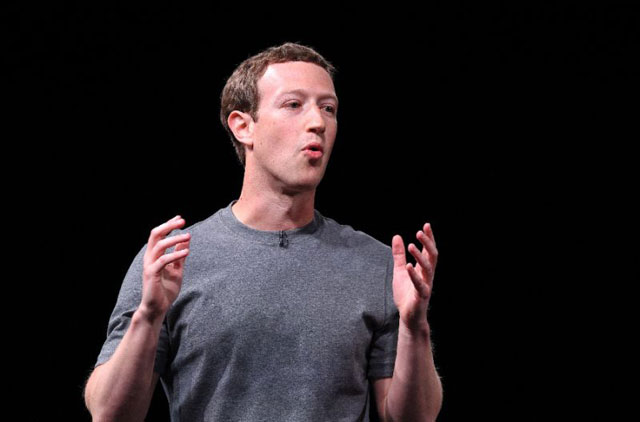The party-based system is deemed the only way to enable coherent representation of different viewpoints, ideologies, features and interests that exist in society. Yet while parties draw people together, they also drive people apart. Divergent perceptions become divisive schisms.
Despite divergences in policies being marginal or even non-existent, it is the personalities of leaders, their own individual or dynastic ambitions and egos that promote a false sense of differences with other parties — whereas, in actual fact, few differences exist.
Even where variations between parties are distinct as in the case of ethnicity or language-based parties, the polarisation reinforces and strengthens separation because the very survival of such parties largely depends on sustaining and heightening the differences.
In cases where parties have sharply defined and instantly distinct political ideologies, the maintenance of the separate and special identity is central to the very survival of the party. The net result of the existence of more than one political party is the deepening of divisions — which is not to suggest that only a monolithic single-party system is preferable or better than a pluralist multi-party system! It is only to underline the fact that political parties tend to intensify discord between human beings, not to dilute or remove it, as ideals urge us to do.
Existing in conditions which already contain inherent diversities of race or language or religion or sect or class, most parties sharpen these already-strong lines.
Yet, to their credit, parties occasionally rise above inherited or man-made walls. They sometimes unanimously adopt fundamental frameworks such as the 1973 Constitution and the 18th Amendment. Parties also often work together in election alliances or in government coalitions while continuing un-changed with their respective individual identities. Where such flexibility may, in certain instances be seen as opportunism, the willingness to compromise reflects the remarkable quality of adaptation possessed by political parties as a particular type of social organisation.
As numbers rule in elections, the candidate who gets the most votes in a constituency in a single round and the party winning the most seats in a general election become the winners or the rulers. This is an absurdity of the first-past-the-post system as it exists in Pakistan, and elsewhere. In a constituency, the losing candidates may together secure more votes than the single winning candidate. Yet the losers remain entirely un-represented. The absurdity is compounded by the tendency of less than 50 per cent of voters to cast their votes. And this means that a winning candidate or a winning party neither represents the majority of those who voted nor do the winners represent the majority of registered voters. But the winners, in spite of being non-representative of the majority, carry on for five years — or until the next election, sanctified by an utterly irrational, unfair electoral method.
Whether through the introduction of a second or third round of polling till a candidate obtains 51 per cent of the votes cast or the registered vote, or by the adoption of compulsory voting as is the case in about 35 countries, there is a glaring need for reform of electoral processes.
The intrinsic paradox remains of political parties being unavoidable in democracy while at the same time, party-based partisanship contaminating the political process. Therefore, there is scope for exploration in political philosophy of new concepts as well as practical pilot-scale experiments to examine possible alternatives and improvements to make electoral democracy less conflictual and more representative of public opinion.
Published in The Express Tribune, December 30th, 2011.
COMMENTS (11)
Comments are moderated and generally will be posted if they are on-topic and not abusive.
For more information, please see our Comments FAQ


















The party-based system is deemed the only way to enable coherent representation of different viewpoints, ideologies, features and interests that exist in society. Yet while parties draw people together, they also drive people apart. Divergent perceptions become divisive schisms.
Not neccessarily.
A. In a multi party democracy, combined with proportional representation system, parties will have no option but to cooperate, unless one of them happens to get a clear majority of votes. Please also note that proportional representation also ensures that all shades of public opinion or interest find an expression in the highest policy making body.
B. A non-party system (for example Basic Democracy model of the past) is no less divisive. Just revisit the election involving Fatima Jinnah and Gen Ayub to understand the rancour and schism.
That's what happened in 2008 elections. There were more voters against PPP on an overall basis. so the choice of the majority of the voters went ignored. Also merging into other parties after getting elected in the name of reconciliation is an insult to the voters. Reconciliation of any, should happen before elections in the interest of the country, not for the sake of sitting in the treasury benches.
@Mirza...ANP accepted defeat in 2002 while coming on media (newspaper then). It was a great example they set.
as per our national culture ...sir u have pointed out the flaw.....this is an easier part to do....the diff part of it is HOW to resolve this...give complete procedure that could be followed by the parliment or election commission to get rid of this flaw from demoractive system....
@Falcon: I sure agree with you. Please read my first line! No system in the world is perfect. We have to choose the bad from the worse. The basic difference is in other countries (I do not want to give the example of India) the election results are accepted while in Pakistan they are contested and delegitimized from day one. Thanks and regards, Mirza
Oh no--this seems like an apologist for the military article. The writer has picked on political parties and first past the post needlessly when our actual problems are the military's meddling in politics and a poor selection of candidates due to lack of internal party democracy. The differences that political parties represent allow people to talk them out and actually come closer. The line the writer is taking is close to the Imran Khan attempts at telling people about the ills of political parties and yet wanting to usurp power for himself. I hope this article has not been written to start a campaign of "electoral reforms" that would only take power away from legitimate democratic forces, wanting as they may be. I would have wanted to read better from JJ.
@Mirza: While things are much better in US than Pakistan, it's not that hunky-dory as well. Had their egos been so well tamed and their focus so sharp, they won't have ended up in counter-productive melodramatic deadlocks over key debt and taxation related decisions.
Excellent point made by you. The system as it exists works to the benefit of the few and the detriment of the many. Possibly that is why it has often been labelled as ' sham democracy '.
Democracy is the worst form of govt except all the others. The world is not perfect and we have to choose leser of the evils. We can wait for a perfect solution and do nothing or we can start our journey with small steps and continue with the most popular and tested form of govt in the world. One can make convincing arguments that the vote of a university/college professor should not be equal to ordinary person. Or urban people's votes must carry more weight as they are more enlightened. A more pragmatic solution is "accepting the rejection by the voters". In the US, in any election when the results start coming in the losing candidate comes out after calling the winning candidate and tells his supporters that he/she accepts the verdict of people and bows down to their choice. He congratulates the winner and offers full cooperation and tells his/her supporters that elections are over and we are one and work for the country. It is only after this speech does the winner claims victory. In Pakistan, no candidate ever admits his/her defeat and starts working for undoing the will of the electorate from day one.
Sir u have very good points but suggested steps need determination, will and time, And at present government is lacking in all three,